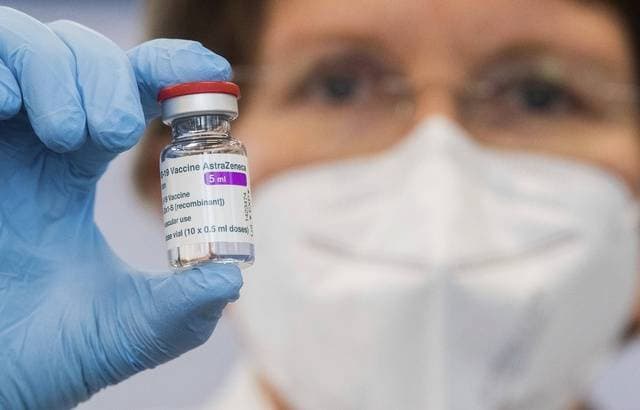Coronavirus: Faced with a Shortage, Italy Blocks the Export of AstraZeneca Vaccine to Australia

EPIDEMIC: The European Commission has not raised any objection to this decision by Italy to block the export of the AstraZeneca Covid-19 Vaccine
A first in the European Union. Rome has blocked the export to Australia of doses of AstraZeneca’s coronavirus Covid-19 vaccine produced on European soil. This is the first application of a control mechanism put in place by Brussels, the Italian government announced on Thursday. Italy communicated its decision on February 26 to the European Commission, which raised no objections.
The Foreign Ministry said in a statement that this export refusal related to 250,700 doses from the Swedish-British laboratory. Italy justified this by “the persistent shortage of vaccines and delays in supply from AstraZeneca” in the EU and Italy, the “large quantity” of doses concerned and the fact that Australia is considered a “non-vulnerable” country by the EU mechanism.
Only a third of the 120 million doses delivered
AstraZeneca has come under heavy criticism from European governments after announcing in January that it could deliver in the first quarter only a third of the 120 million doses it had initially promised to the 27 EU member states, due to manufacturing difficulties in the first quarter. a Belgian factory. The argument did not convince Brussels, which recalled that three other factories were mentioned in the contract signed with the EU.
The Australian Foreign Ministry on Friday downplayed the impact of Italy’s decision on its vaccination plan. The delivery of doses of AstraZeneca that the Italian government has blocked “was not included in our distribution plan for the next few weeks,” said a spokesperson for the ministry. “It’s just one shipment from one country,” he said.
Safeguards to exports
Australia, which approved the AstraZeneca vaccine in mid-February, has already received a delivery of 300,000 doses of this vaccine, and the first are to be injected this Friday to healthcare workers in the south of the country. These 300,000 doses, coming in addition to doses of the Pfizer vaccine, should make it possible to hold out until the pace of Australian production of AstraZeneca is increased. About 50 million doses need to be produced locally.
Although denying itself to specifically target AstraZeneca, the European Commission has been imposing safeguards on exports of coronavirus Covid-19 vaccines produced in the EU since the end of January, in order to keep control of the doses intended for the Twenty-Seven.
Autonomous state control at customs
This is the first time that a member state has blocked an export through this mechanism, said a European source. The system provides that the States themselves exercise this control via their national customs: each State examines export authorisation applications for vaccines manufactured on its territory, before seeking the opinion of the Commission, to which it must comply. conform.
The Commission “maintains a table of requests for the export of coronavirus Covid-19 vaccines and the corresponding commitments” from laboratories under the pre-order agreements made by the EU, and it is on this basis that it has approved the Italian decision, according to another European source. AstraZeneca, which manufactures its Covid-19 vaccine at sites in Belgium and the Netherlands, has a bottling and packaging plant in Italy in Anagni, near Rome.
Only 1.51 million Italians vaccinated
As in many Member States, voices were raised in Italy to criticize the slowness of the vaccination campaign, launched with fanfare at the end of December but which quickly encountered delays in deliveries.
At this stage, 1.51 million Italians have been vaccinated, mainly health workers and the elderly, and 4.84 million doses have been administered, for a total population of some 60 million.
Enjoyed this? Get the week’s top France stories
One email every Sunday. Unsubscribe anytime.


